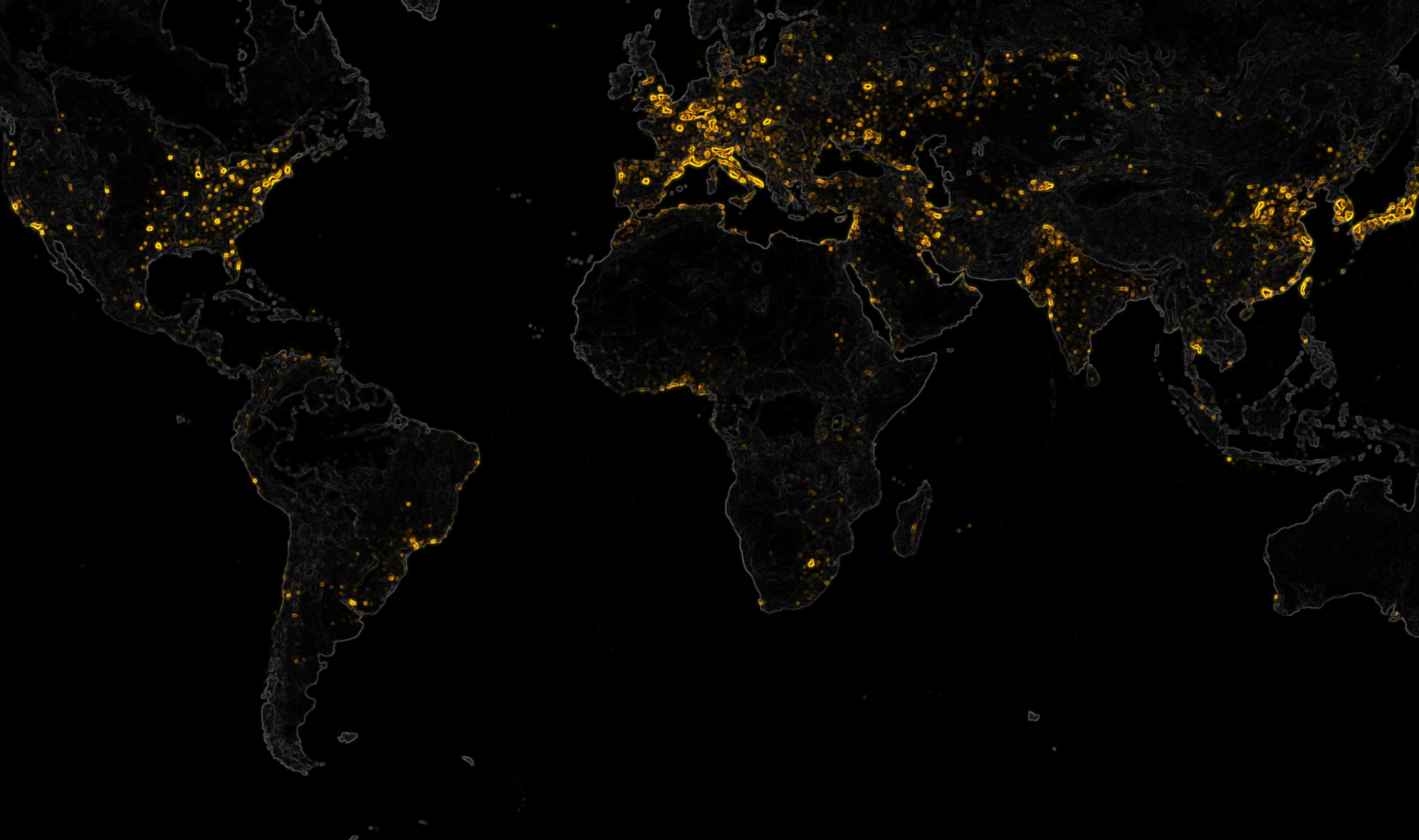Geospatial Science
Geospatial science allows environmental scientists and resource managers to better understand and manage challenges related to socio-environmental issues such as food, energy, public health, and natural resources, including management and conservation of wildlife, fisheries, oceans, forests, rangelands and soils, and wildland recreation resources.
Geospatial Science Option in the Environmental Science & Management Degree
Geography Major
The geospatial system concentration in geography allows students to develop geospatial approaches to address issues at the intersection of the natural and social sciences, including issues of climate change, environmental conservation, human migrations, water resources, climatology, and regional studies. The geography program offers a wide range of field experiences, community involvement, and collaborative opportunities.
Geospatial Analysis Minor
This program prepares students to apply the technologies of geographic information systems, cartography, and multispectral remote sensing, to various disciplines.
Masters of Natural Resources
The M.S. program in Natural Resources is intended to provide graduate training in traditional disciplines, as well as flexibility for training in the interdisciplinary aspects of natural resources.
Masters of Natural Resources (can be taken with a focus on geospatial analysis
Geospatial Certificate
Our Geospatial Certificate Program provides foundational concepts and methods in GIS, Remote Sensing, and Cartography that are transferable and relevant across disciplines and industries. Anyone can apply for the geospatial certificate except for existing Cal Poly Humboldt undergraduates who will want to apply for the Geospatial Analysis Minor.
New Geospatial Science and Technology Major for 2023
Core Classes (44-45 units):
- GSP 101 (3) Geospatial Concepts
- MATH 101T (3). Trigonometry
- GEOG 105 (3) Human Geography or GEOG 106 (3) Physical Geography.
- STAT 109 (4) Introductory Biostatistics or STAT 108 (3) Elementary Statistics.
- GSP 216 (3) Intro to Remote Sensing [Prereq: GSP 101]
- GSP 270 (3) Geographic Information Science (GIS) [Prereq: GSP 101] or GSP 272 (3) GIS for Social Sciences
- ESM 230 (3) Environmental Methods [Prereq: (ESM 105 or GEOG 106) and STAT 109] or GEOG 311 Geographic Research & Writing
- GSP 316 (4) Cartography [Prereq: GSP 101]
- GSP 318 (3) Geospatial Programming I [Prereq: GSP 101]
- GSP 326 (3) Intermediate Remote Sensing [Prereq: GSP 216; recommended MATH 105]
- GSP 330 (3) Mobile Mapping [Prereq: GSP 101]
- GSP 370 (3) Intermediate GIS [Prereq: GSP 270]
- ESM/GSP 410 (4) Geospatial Capstone or GEOG 411 (4) Senior Field Research
Restricted Electives (7 units):
- 7 units chosen from the following:
- GSP 416 (4) Advanced Cartography Design Seminar [Prereq: GSP 316]
- GSP 418 (3) Geospatial Programming II [Prereq: GSP 318]
- GSP 426 (1-4) Cartography Practicum [Prereq: GSP 270 and GSP 316]
- GSP 436 (3) Advanced Remote Sensing [Prereq: GSP 326]
- CS 325 (4) Database Design [Prereq: CS 112; or GSP 270 and (CS 111 or CS 232 or GSP 318)]
- CS 328 (4) Web Apps with Databases [Prereq: CS 325]
- GEOG 471M (1) Topics in Human Geography D. E.
- GEOG 472M (1) Topics in Regional Geography D. E.
- GEOG 473M (1) Topics in Physical Geography D. E.
- GSP 480 (1-2) Selected Topics in Geospatial Analysis
- GSP 480L (1-2) Selected Topics in Geospatial Lab
- GSP 482 (2-3) Geospatial Internship
Area of Emphasis:
The concentrations are designed to provide students with skills that complement the core Geospatial curriculum. Concentrations are not listed on your diploma or transcripts, but you can highlight this additional skill-set on your resume and elsewhere. Students are required to complete at least 18 units of course work in a concentration. Students may work with their advisors to substitute some courses in order to tailor the concentration to their specific interest. Options could include: forestry, range/soils, wildlife, fisheries, geology, oceanography, anthropology, history, international studies, Native American studies, politics, religious studies, sociology, criminology, world languages and cultures, business, and economics. Course substitutions must be approved by the advisor in consultation with the Dept. Chair or another faculty advisor in that department.
Social Science Concentration:
Select 18 units from
- ANTH 316 (4) Anthropology & Development
- ANTH 359 (4) Digitization in Archaeology (new # coming)
- GEOG 300 (3) Global Awareness (Area D, DCG-n)
- GEOG 301 (3) International Environmental Issues & Globalization (Area D)
- GEOG 304 (3) Migrations & Mosaics (Area D, DCG-d)
- GEOG 357(3) Climate, Ecosystems & People
- GEOG 357M (1) Climate, Ecosystems & People Depth Experience
- GEOG 363 (3) Political Geography
- GEOG 365 (4) Political Ecology
- GEOG 471 (3) Topics in Human Geography
- GEOG 472 (3) Topics in Regional Geography
- NAS 332 (3) Environmental Justice
- SOC 225S (4). Social Issues & Action
- SOC 316 / WS 316 (4) Gender and Society
Environmental Science & Management Concentration:
- ESM 105 (3) Natural Resource Conservation
- BOT 105 (3) General Botany or BIOL 105 (3) General Biology
- Select 12 units from
- ESM 325 (3) Environmental Law & Regulation
- ESM 303 (4) Applied Natural History & Ecology [Prereq: ESM 105 and ESM 230 and (STAT 108 or STAT 108i or STAT 109) and (BIOL 105 or BOT 105)
- ESM 305 (3) Environmental Conflict Resolution
- ESM 309B (3) Environmental Communication
- ESM 350 (3) Fundamentals of Environmental Education & Interpretation
- ESM 430 (3) NR Management in Protected Areas [Prereq: ESM 303]
- ESM 425 (3) Environmental Impact Assessment
- ESM 435 (2) Grant Proposal Writing
- ESM 450 (3) Applied Environmental Education & Interpretation [Prereq: ESM 350]
- GEOG 357 (3) Climate, Ecosystems & People
- GEOG 357M (1) Climate, Ecosystems & People Depth Experience
- NAS 331 (3) Indigenous Natural Resource Management Practices
